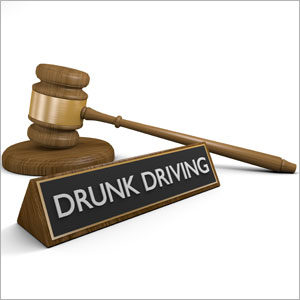
How To Challenge The Reason For Your DWI Traffic Stop In Texas
In a DWI case, one of the most crucial points to examine is the initial traffic stop. We start by asking why the officer pulled you over because the state must show that the stop was legally justified. If the officer lacked probable cause for the detention, we can argue that key evidence—such as field sobriety tests, officer observations, and BAC results—should be suppressed. Without this evidence, the state often has no foundation to pursue the case, which can lead to a complete dismissal of charges.
The Key Pieces Of Evidence Against You
When stopped, several important pieces of evidence are typically gathered after the initial detention, including:
- Observations of alcohol on your breath,
- Results of field sobriety tests administered after you exit the vehicle,
- Results of any blood or breath tests requested during the stop.
The reason for your stop also affects your driver’s license suspension. For DPS to suspend your license, they must prove the officer had probable cause for the stop. If probable cause is missing, we may be able to lift the suspension through a DMV hearing.
By challenging the initial stop, we aim to protect both your driving privileges and your future.
Do You Believe You Were Pulled Over Unlawfully?
If you suspect you were unlawfully stopped and then arrested for DWI, act quickly. First, consult an attorney as soon as possible; you only have 15 days from the notice of suspension to request a hearing to challenge it. If the officer did not have probable cause, your attorney can help fight the suspension.
An experienced attorney can also file a motion to suppress evidence in the criminal case against you. In some situations, discussions with the prosecutor may even prevent charges from being filed at all. By challenging the legality of the initial stop, we give you the best chance of protecting both your driving privileges and your future.
The Stages Of A Building Solid DWI Defense In Texas
In our office, we break down DWI defense into ten critical stages. Each stage is designed to build a thorough defense while keeping your unique situation in focus.
1. The License Revocation Hearing
The first stage is requesting an administrative hearing to challenge your license suspension. This is a key moment in any DWI case because it allows us two main advantages.
First, it’s an opportunity to prevent your license from being suspended. Second, it lets us access the unredacted police report, giving us insight into the full allegations and the evidence the state believes it has against you. This helps us start building a defense plan with eyes wide open.
2. Crafting A Personalized Defense Plan
We don’t believe in a one-size-fits-all defense. We tailor our approach to show the state who you are beyond this charge. Whether it’s challenging the stop or highlighting your character, we want the prosecutor to see you as a person, not just a case number.
You’re more than a single mistake—you’re a student, a parent, an employee, an active member of your community. Details like volunteer work or community involvement can sometimes make all the difference.
3. Stressing The Cost Of This Case
We make sure the court knows how this case affects your life outside of the DWI charge. Maybe you’re balancing work and school, supporting a family, or managing other responsibilities.
When we formally notify the court that we’re representing you, it shifts the communication burden to us, keeping you free to focus on your daily life. We stay in touch throughout the process, and when court dates come up, we’ll make sure you’re fully prepared for what to expect.
4. Challenging The Suspension
Once we receive discovery from the Texas Department of Public Safety, we plan our approach to fight the suspension at the administrative hearing. We’ll do everything possible to keep your license active.
5. Obtaining A Restricted License
If we can’t prevent the suspension, we’ll petition the court for a restricted license, either an essential need or ignition interlock license, so you can still drive for work or critical needs. By this point, the prosecutor has typically filed the criminal case against you.
6. Responding To Your Case In Court
When the criminal case is filed, we generally file a waiver of arraignment in misdemeanors, so you don’t have to attend. For felony cases, we’ll have you attend because it reinforces to the state that you’re engaged in your case. We want to show them that you’re more than a file number and that, while you may have made a mistake, you’re worth understanding and showing leniency toward.
7. Request For Discovery
When your case reaches the discovery stage, we start by filing a request under Texas Code of Criminal Procedure 39.14, also known as the Michael Morton Act. This law requires the state to hand over all evidence in your case—whether it supports their argument or could work in your favor.
Once we have the evidence, we will go over it thoroughly, alongside everything we’ve learned from you, to build a comprehensive defense strategy.
8. Questioning The Officer(s)
Next, we carefully examine the background and training of the officers involved in your arrest. Are they certified in field sobriety testing? When did they earn their certification, and what’s their experience level? In some cases, we bring in a former officer with DWI training to analyze the state’s evidence and identify weaknesses. This added perspective can be a valuable asset to your defense.
9. Negotiations
After gathering and analyzing the evidence, we begin negotiating with the prosecutor. The most favorable offers rarely come in the first meeting; it often takes three or four discussions to secure the best possible outcome. If the evidence against you is strong, our aim is to negotiate an outcome that avoids a conviction and keeps the door open for an expungement in the future.
Once the state presents its final offer, we meet to discuss what it means for you. We review how a DWI conviction could impact different areas of your life, along with the consequences of the state’s offer, and help you decide whether to accept it or proceed to trial. We’ll always offer our best advice, but the choice to go to trial is ultimately yours.
10. Trial
If you decide to go to trial, we’ll be ready. Our team has extensive experience handling DWIs, including board certification in criminal law, which means you’ll have strong representation at every step in the courtroom.
Once we have the initial discovery in your case from the Texas Department of Public Safety, we’ll have a solid understanding of the state’s case against you. At that point, we’ll review all the evidence and negotiate with the state to work toward the most favorable offer.
Considering Plea Deals
Preventing a conviction is always one of our primary goals, as it can make a significant difference in your long-term future – but when the state provides a reasonable plea offer, that’s the time to seriously consider whether or not to accept it. Key questions we evaluate together include whether the offer involves a conviction or if it allows for an expungement later.
Of course, deciding whether to accept a plea deal is highly personal. Only you fully understand the factors at play in your life, whether they involve your home, job, or other responsibilities. Our job is to ensure you’re fully informed about the state’s case and prepared for trial if that’s the route you choose. With all the facts and our guidance, you’ll be empowered to make the best decision—whether that’s accepting the offer or taking your case to court.
Still Have Questions? Ready To Get Started?
For more information on Challenging A Texas DWI Charge, an initial strategy session is your next best step. Get the information and legal answers you are seeking by calling (361) 882-7788 today.
